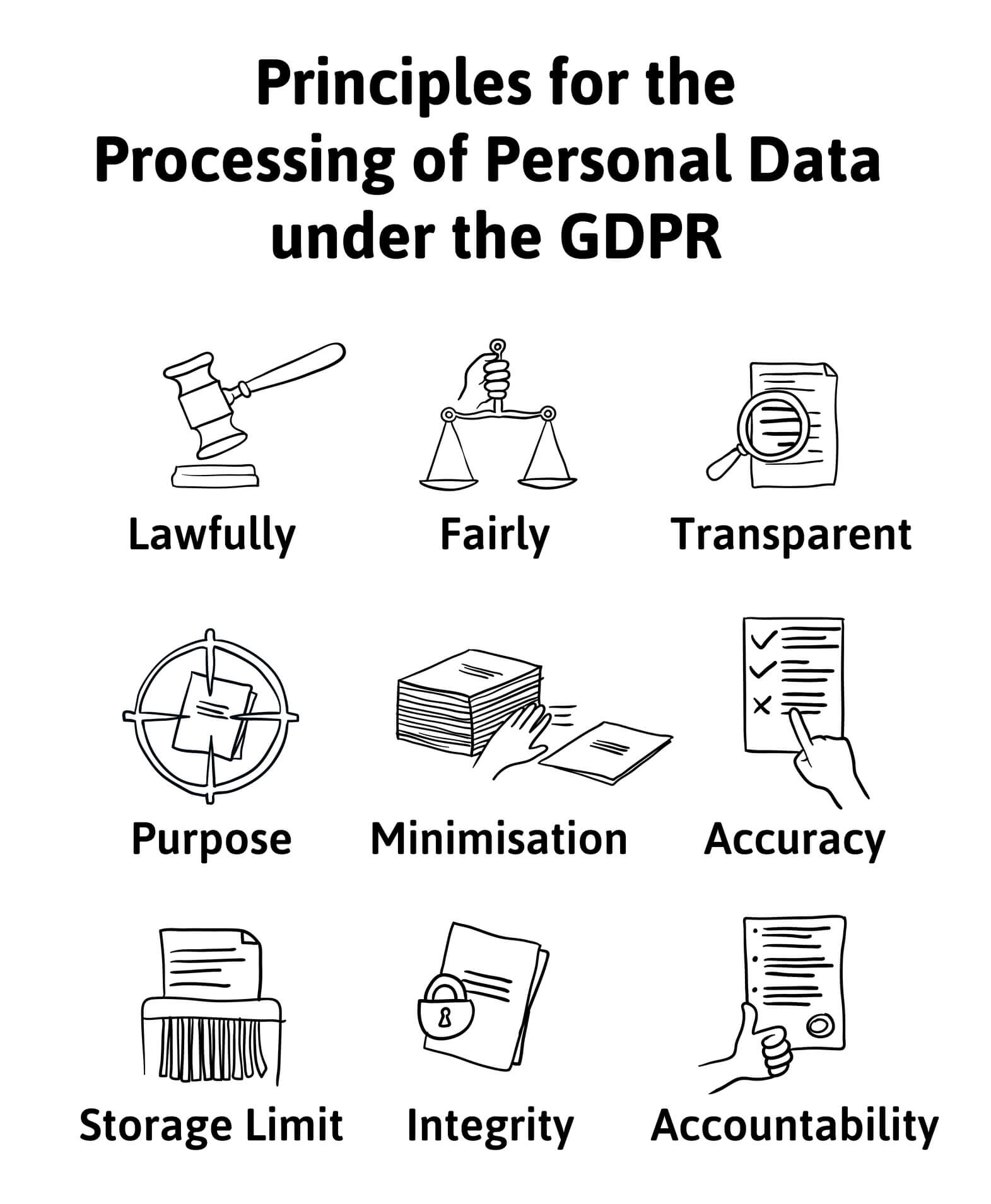The EU GDPR regulations are now in full effect. Organizations are frantically working to ensure their internal communications meet GDPR requirements to avoid being shut out from doing business with the European Union. The General Data Protection Regulation aims to protect both companies and the consumers they serve, so not meeting GDPR compliance standards means there’s more at risk than huge fines.
Get a free demo of Beekeeper here to see how you can improve your internal communications for desk and mobile staff throughout your organization.
Personal data protections affect outside business, but what you may not realize is that GDPR regulation also impacts internal communications systems within organizations. Keeping an eye on both internal and external data privacy might mean changing your organization’s internal communications strategy and its software to ensure GDPR compliance.
Information Lockdown
The GDPR overview covers users’ rights to access, rights to erasure of data, data portability, privacy by design, and even involves appointment and oversight of Data Protection Officers to track compliance. Transparency in data subjects’ rights, along with enhanced protections against security breaches, will affect how your organization handles information flow through internal communications in the future.
Locking down sensitive information is a critical component of the GDPR requirements. Here is what you need to know about personal information as it relates to internal communications.
The Definition of Personal Data
If your company regularly uses email or another platform for internal communications, you should expect significant changes in the way you use those media. According to GDPR requirements, personal data is any information about a person or data subject that offers identification. This loose definition includes:
- Names
- Photos
- Email addresses
- Bank details
- Social media posts
- Medical information
- IP addresses
If your employees routinely hold private discussions via email, forward medical updates to Human Resources personnel via attachments, or work remotely, the GDPR regulation will affect your responsibility for that information. Still, these are only a few examples of information privacy concerns when it comes to internal communications within organizations.
Communication Solutions for GDPR Compliance
Choosing communication solutions that meet GDPR compliance protects users’ data by default. Both internal employees sharing personal information and workers processing client information will follow the same guidelines for information privacy.
Whether your business is part of the EU or not, clients and employees alike will recognize GDPR compliance as a sign that your organization takes privacy seriously. At the same time, acknowledging that employee internal communications, both on a personal and professional level, contributes to workplace morale is another component of GDPR compliance.
Improved internal communications policies and platforms help employees connect and ease the often-complicated transfer of information. However, getting employees on board may prove the most challenging part of adapting to GDPR requirements. Still, user-friendly services and integrations can help ease the transition, so choosing the right internal communications solution takes precedence.

Blocking Hacker Activity
Companies that fail to protect their employees’ and customers’ personal information face substantial costs in the form of fines and lost business if the breach occurs. Conforming to GDPR regulation not only adds further protection from hackers, but also guarantees that your company maintains client trust.
The new GDPR regulations mean that information traveling online might require a specific type of encryption protection (like end-to-end), but many businesses need more than email to support internal communications. Confidential peer-to-peer communication is one component of organizational communication systems, but that security can extend to all areas of the business to conform to the EU GDPR requirements.
Internal Communications Guide Productivity
At a time when business truly is global, ensuring that your company’s communication methods support rather than reduce its productivity is a priority. In fact, improved internal communications and collaboration through social technologies can raise productivity by 20 to 25%, according to the McKinsey Global Institute.
At the same time, adapting to alternative internal communications that adhere to GDPR requirements now means that when May 2018 rolls around, you’re ahead of the deadline in guaranteeing GDPR compliance. As a bonus, moving away from conventional communication methods frees up the time you previously spent clearing up misunderstandings due to lagging internal communications.
Employee Contributions to Communication
Although cybersecurity is a considerable concern for business owners, employees are often left out of the loop. Making sure that employees care about cybersecurity is the first step in adhering to the new GDPR privacy rules. Encouraging employee participation and feedback is a huge part of maintaining cybersecurity throughout your organization.
Your internal communications approach should consider employees’ needs and responsibilities. As you roll out new processes and guidelines to conform with GDPR guidelines, involve employees in the process. Create a communication policy that includes a GDPR overview and clearly defines expected employee behavior and notes any upcoming changes in communication platforms.
Making sure to highlight when and through which channels personal information should travel is the first step, but helping staff understand the intent behind these policies with a thorough GDPR overview is essential, too. Soliciting employee feedback confirms understanding and clarifies any details. This goes a long in way in improving and securing communication.
Participation to Productivity
While taking the time to help employees through a transition in both procedure and software may initially detract from productivity, note that companies with high effectiveness in change management and communication are 3.5 times more likely to outperform their industry competitors. This comes from a study by Towers Watson which highlighted employee contributions as they impact an organization’s bottom line. The study’s findings illustrate an intricate relationship between internal communication, management guidance, and job performance.
To get a more in-depth GDPR overview and learn more about improving internal communications, get a free Beekeeper demo now.




